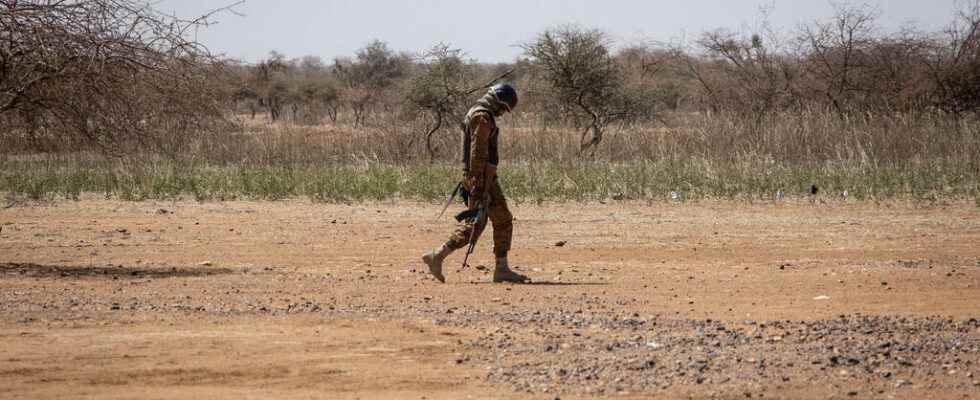While the President of Faso, Lieutenant-Colonel Paul Henri Sandaogo Damiba was visiting Dori and Seytenga on Wednesday June 15 with displaced populations and soldiers, many Burkinabè, politicians, civil society actors or simple citizens on the social networks, await explanations, on what they consider as an abandonment of the civil populations.
With our correspondent in Ouagadougou, Yaya Boudani
In Burkina Faso, a few days after the massacre of civilian populations in Seytenga, in the Sahel region, and 24 hours from the end of the three days of national mourning, the toll of the attack has risen to 86 dead. The research is complete according to the government information service.
While deploring the death of gendarmes and civilians in Seytenga, the Union for Progress and Change demands that the circumstances which led to the abandonment of this locality by the fighting forces of Burkina be clarified. ” After the attack on the gendarmerie, what went wrong for us to come back to attack civilian populations who have no weapons and are only asking to live? asks Moussa Zerbo, the party’s spokesman. “ And there is Dori who is not far away. And there is a base there. We could have logically expected that there would be reinforcements to help those of Seytenga. The military hierarchy must assume its responsibilities and also manage to situate the responsibilities. »
“ It’s shocking, it’s worrying, there aren’t enough words to describe what happened to Seytenga, loose Eric Kinda, one of the spokespersons of the Balai citoyen. For this movement, such a situation must no longer arise and all the consequences must be drawn: “ The terrorists came to attack the detachment. They left and they had the necessary time to come back a second time. We can therefore say that it is a population that has been abandoned to its own fate and that is revolting and unacceptable. »
For the spokesperson of Balai Citoyen, it is high time that all Burkinabè patriots mobilize to fight back against terrorism.
■ 6000 displaced in Dori
In the panic, more than 6,000 people took refuge in the nearby town of Dori, where humanitarian needs are great, explains Doctor Ulrich Namfeibona, MSF deputy head of mission.
The most urgent is access to drinking water, shelter and there is also a dire lack of toilets.
Doctor Ulrich Namfeibona
